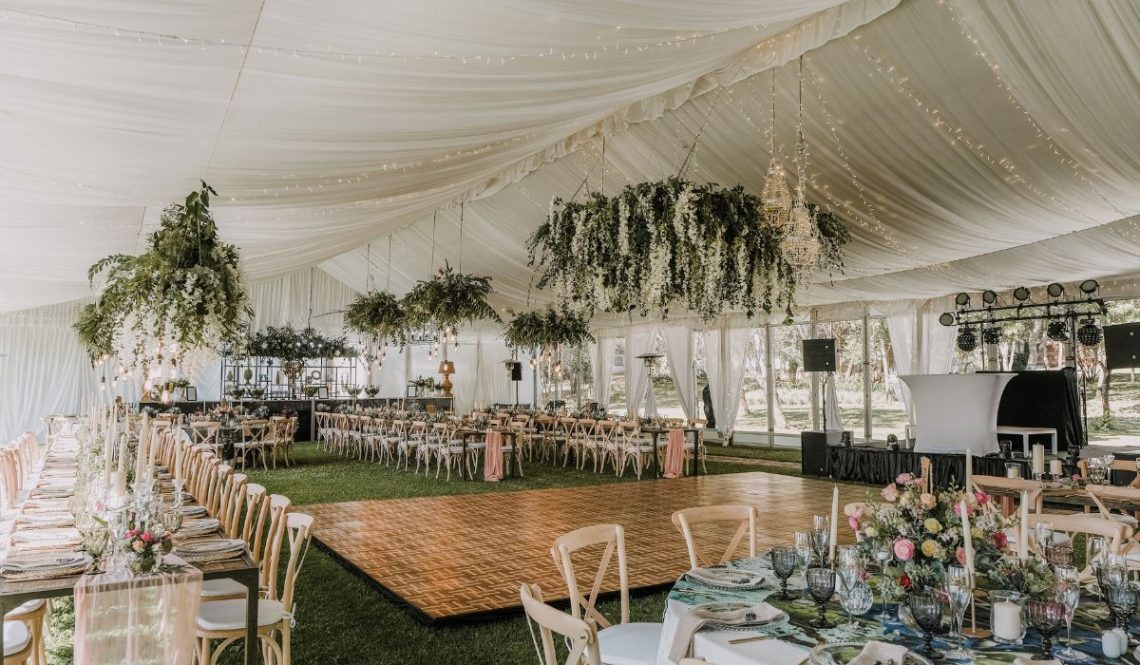
How To Start Your Own Venue Business | SkillsAndTech
Starting a venue business is an exciting and rewarding venture, but also a daunting one. There’s so much to consider: location, size, cost, and more. It can be overwhelming to even think about how to get started. However, with the right guidance and knowledge, you can learn how to start your own venue business quickly and effectively.
In this blog post, we will discuss the key steps for getting started on your new venture—from researching the market to developing a marketing plan and beyond. Read on to find out everything you need to know about starting your own venue business!
See Also: How To Start Your Own Storage Unit Business
Table of Contents
What is a venue business?
A venue business is a type of business that provides a space for events. This can include things like weddings, parties, concerts, and more. Venue businesses can be either brick-and-mortar locations or online spaces.
See Also: How To Start Your Own Transportation Business
There are many different types of venue businesses, and the one you choose will depend on the type of event you want to host. For example, if you want to host weddings, you’ll need a different type of venue than if you want to host parties. Some venue businesses even specialize in certain types of events.
The most important thing to remember when starting a venue business is that you need to provide a space that is safe and enjoyable for your guests. This means making sure the space is clean and well-maintained, and that it has all the necessary amenities for the events you’ll be hosting. You’ll also need to have a good grasp on event planning so that you can ensure your events run smoothly.
Why start a venue business?
See Also: How To Start Your Own Snow Removal Business
When it comes to starting your own business, there are a lot of factors to consider. But if you’re passionate about the music industry and have always dreamed of owning your own venue, then a venue business could be the perfect fit for you. Here are four reasons why starting a venue business can be a great decision:
1. You’ll be able to control your own destiny.
As the owner of a venue business, you’ll be in charge of everything from booking shows and managing staff to promoting the venue and keeping it running smoothly. This means that you’ll have complete control over your business’s success or failure.
See Also: How To Start Your Own Gaming Business
2. You’ll have the opportunity to support up-and-coming artists.
One of the best parts about owning a venue is that you’ll get to help new and upcoming artists reach their potential. By booking shows and providing a space for them to perform, you’ll be playing an important role in their success.
3. You can create a community gathering space.
Venues aren’t just about music – they can also be community gathering spaces where people can come together to socialize, network, and have fun. As the owner of a venue business, you’ll get to create a space that brings people together and helps build relationships within your community.
See Also: How To Start Your Own Mental Health Business
4. It’s a fun and rewarding business venture.
Owning your own venue can be an incredibly rewarding experience – both financially and personally.
What do you need to start a venue business?
When starting any business, there are a few key things you need in order to get started. The same is true for starting your own venue business. To get started, you’ll need:
-A business plan: This will outline your business goals, strategies, and how you plan on making your venue successful.
See Also: How To Start Your Own Training Business
-Capital: You’ll need money to get started, so be sure to have some saved up or look into small business loans.
-The right location: A good location is key for any business, but it’s especially important for venues. You want a space that’s easily accessible and has the right infrastructure for hosting events.
-Permits and licenses: Depending on the type of events you plan on hosting, you may need to obtain special permits or licenses. Be sure to research the requirements in your area.
See Also: How To Start Your Own Trucking Dispatching Business
-Insurance: You’ll need liability insurance to protect your business in case of accidents or injuries at your venue.
With these key elements in place, you’ll be well on your way to starting a successful venue business!
How to market your venue business
In order to market your venue business, you’ll need to identify your target audience and figure out what kind of messaging will resonate with them. Once you’ve done that, you can start creating marketing materials and launching campaigns that will reach your target customers.
See Also: How To Start A Slush Business
There are a number of ways to reach your target audience, including online advertising, PR and social media. You’ll need to experiment with different tactics to see what works best for your business.
It’s also important to create a strong brand for your venue. This includes everything from your logo and website design to the way you interact with customers. Your brand should reflect the unique experience you offer at your venue.
Finally, always be sure to measure the results of your marketing efforts so that you can continue to improve and refine your strategy over time.
Venue business case studies
See Also: How To Start A Hoarding Clean Up Business
When it comes to starting your own venue business, there is no one-size-fits-all solution. However, looking at successful venue businesses can give you a good idea of what it takes to succeed in this industry.
In this section, we will take a look at three different venue businesses and how they have found success.
1. The Venue Business: A case study
The Venue Business is a family-owned business that has been running for over 15 years. They are based in the UK and have a portfolio of over 30 venues across the country.
The Venue Business has been successful due to their focus on customer service and providing a personal touch to their clients. They offer a bespoke service to each of their clients, which has allowed them to stand out from the competition.
See Also: How To Start A Garbage Can Cleaning Business
2. The Music Venue: A case study
The Music Venue is an independent music venue located in London. They have been open for over 5 years and have become one of the most popular music venues in the city.
The Music Venue has found success by offering a unique experience to their customers. They host a variety of events, including live music, DJ sets, and club nights. They also have a bar and restaurant on-site, which allows customers to enjoy a night out without having to leave the venue.
See Also: How To Start Your Own Tree Cutting Business
3. The Sports Venue: A case study
The Sports Venue is a multi
Alternatives to starting your own venue business
There are a few alternatives to starting your own venue business that you may want to consider.
One option is to partner with an existing venue. This can be a great way to get your foot in the door and learn the ropes without having to go through the process of starting a business from scratch. Another option is to work with a booking agency.
See Also: How To Start Your Own Weed Delivery Business
This can be a good way to get started if you don’t have the time or resources to invest in a full-fledged venue business. Finally, you could start your own events company. This would allow you to work with multiple venues and create your own events, which can be a great way to build up your brand and get experience in the industry.
Conclusion
Starting a venue business can be an exciting and rewarding venture. With the right planning, research, and guidance, you can build a successful enterprise that will provide great value to your customers and help make the event-planning process easier for everyone involved.
By taking into consideration the tips outlined in this article and researching what is required in your locality with regards to licenses, permits, regulations, etc., you are well on your way to becoming a successful independent venue owner.






5 Comments
Pingback:
Pingback:
Pingback:
Pingback:
Pingback: